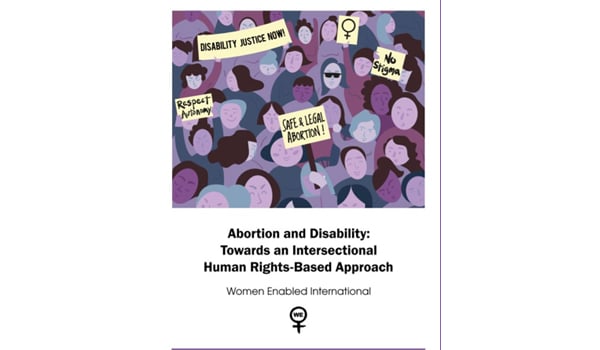
From the ExecutiveSummary
Ongoing debates around fetal impairment as a legal basis forabortion act as a wedge issue between the disability rights and reproductiverights movements. Disability rights advocates are concerned that laws thatexpressly permit abortion on grounds of fetal impairment codify the notion thatdisabled lives are worth less than non-disabled lives. Reproductive rightsadvocates are concerned that reforming abortion laws to remove fetal impairmentgrounds—or to expressly ban abortion in the case of a fetal impairmentdiagnosis—will result in less access to safe abortion and exacerbate theattendant human rights consequences. These tensions are fueled both by advocacystrategies to advance abortion rights that can reinforce harmfuldisability-related stereotypes and by opponents of abortion rights co-optingdisability rights language to impose greater restrictions on abortion access.Women with disabilities, who live at the intersection of these two movements,care deeply about both protecting reproductive autonomy, including the right toaccess safe abortion, and dismantling harmful disability-related stigma. Toooften, however, their voices are left out of the debate. To remedy this lack ofvoice and representation in these ongoing debates, Women Enabled International(WEI) conducted a series of consultations with 40 persons with diversedisabilities, who have the biological capacity to become pregnant, and whoadvocate at the intersection of gender and disability. These consultationsprovided a safe space in which these advocates from around the globe coulddiscuss specific concerns around this historic tension. In this framingdocument, WEI identifies the primary concerns of the women with disabilitieswho participated in these consultations—as well as the primary concerns of thedisability rights and the reproductive rights movements, analyzes the humanrights standards that underpin this debate, and applies an intersectional humanrights-based approach to posit a way forward
FULLREPORT by Women Enabled International, January 2020



